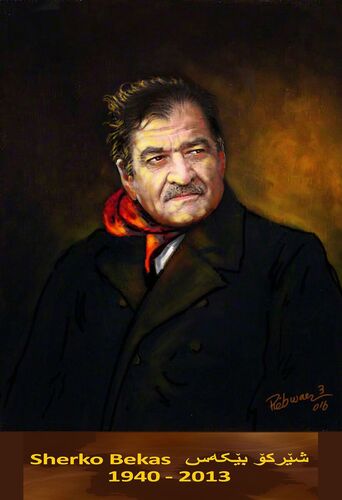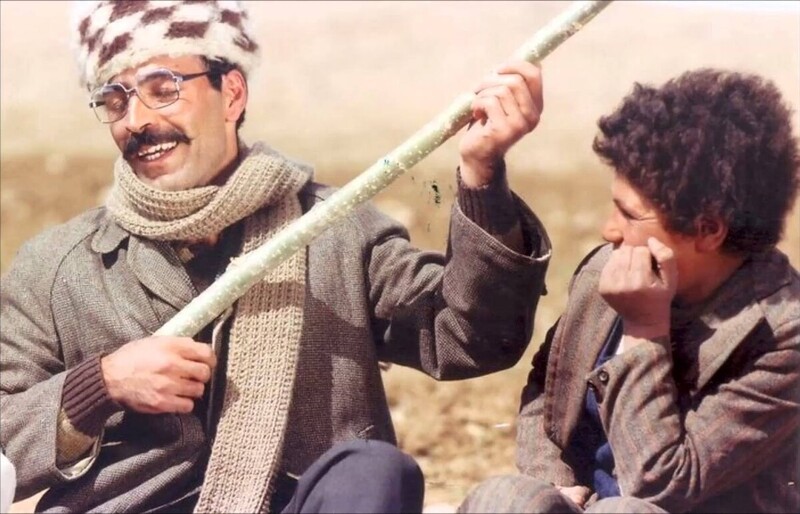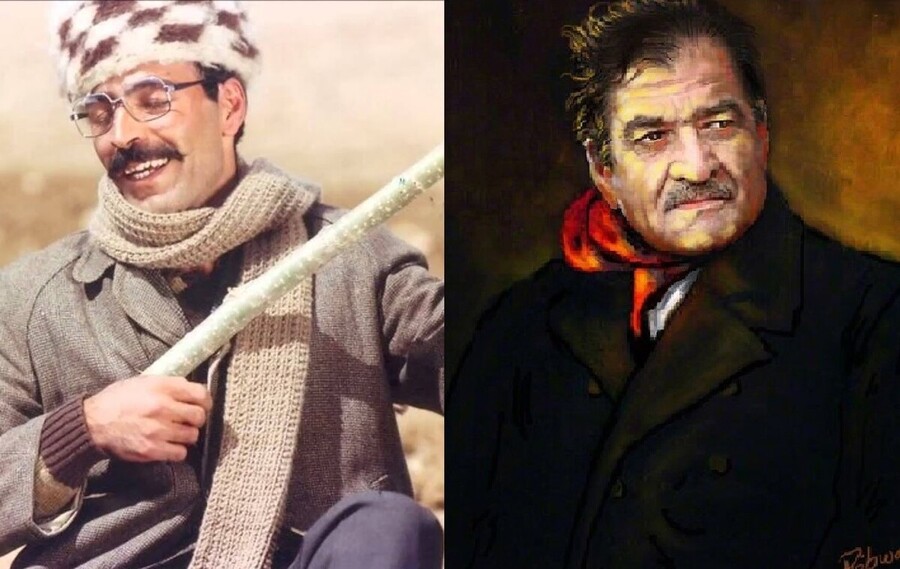(Samad Behrangi and Kurdish Literature and Some Comments)
Dr. Azad Mukri
Among all nations, literature, apart from the field and opportunity to aesthetically express all the phenomena related to humans, nature, and society, can also be assigned another task, for a kind of communication and organization of communication between different discourses. It can also be an opportunity for dialogue between different nations and to know each other. In other words, a kind of literary politics or diplomacy can be established through literature, and literary diplomacy leads to meaningful and long-term relationships. A long-discussed relationship between nations is now called the dialogue of cultures and ideas. Obviously, in a world where sociologists such as Samuel Huntington speak of the “convergence” and “convergence of cultures”, literature can be a good distance for understanding, bringing closer together, and dialogue between different countries, nations, cultures, and opinions.
But as we know, not every writer has the ability or even the knowledge to take literature beyond the borders of their country. Even the meaning, form, and language cannot be separated from the boundaries of its area, city, and region of life. Instead, writers who recognize the importance of the meaning of “intertextuality” try to borrow the cultural motifs, signs, and references they find in the culture and literature of neighboring countries, to create a way for dialogue and lay the foundation for a combined aesthetic love.
Among the writers of the previous generation, in several works, Sherko Bekas has tried to use it as a window and space for this idea, apart from the composition that contains all the aesthetic characteristics of the poet.

Unfortunately, our critics have focused less on finding the texts of Sherko Bekas in this regard and the texts of many other Kurdish poets who have made very serious efforts in this field. Therefore, our literature has either not been able or fewer opportunities have come up to make it across the boundaries of its region. Even if some people mention several names, they do not represent all Kurdish literature, nor do they show all the inner potential and energy of Kurdish literature. Kurdish literature in these fields is more capable of being discovered and unveiled, written about and bridges should be built with nations such as Persians, Turks, Arabs, and even with the Western world and Far Eastern countries. According to a reading of the poems of poets from the time of Sherko Bekas to the poets of today in the East part of Kurdistan, shows that many poets have tried to use poetry for this field of communication. For instance, Sherko Bekas has written a poem about an Iranian leftist revolutionary and intellectual named Khosrow Rouzbeh, who was imprisoned and later executed.
Where he says: "Like Shamloo, I am passionate about Rouzbeh." But Sherko's most important poem in this regard is in his collection of poems "Rubar" (River). It is a poem entitled "The Son of the Sea" which he dedicated to "Samad Behrangi". The Son of the Sea is a narrative poem. Sherko Bekas wrote the narrative poem in 1979. If since then Kurdish critics could translate the poem correctly and write about its semantic aspects, it could be a good gateway for communication between Iranian Kurdish and Turkish writers, intellectuals, and poets because Samad Behrangi is a Turkish-speaking writer and his writings are in Persian. Throughout his writings, he is concerned about the poor Turkish children, whose problems include language. In other words, Samad Behrangi is concerned about the oppressed Iranian Turkish people. On the other side, he is generally with the oppressed and subjugated classes of society, including Persians, Turks, Arabs, and Kurds, because he was a leftist intellectual.

Samad Behrangi
Due to the strong opposition and hostility of the Pahlavi monarchy to leftist thought, after Samad Behrangi drowned in the Aras River, rumors spread that Samad Behrangi's death was political. That is, the Iranian intelligence agencies and intelligence representatives of the Iranian monarchy, who were hostile to any kind of intellectual, killed Samad Behrangi, and thus Samad Behrangi became a hero among several sections of the Iranian people. To the Turks who had suffered national oppression, to all the oppressed, workers, peasants, and poor people whose suffering and dark days he spoke in his stories, and to the children for whom he wrote stories. He had a famous story called "The Little Black Fish" that won a world award.
Sherko Bekas as a poet aware of the changes around him turns the drowning of Samad Behrangi into a poem, The Son of the Sea, and tells it in a rich language. As a libertarian poet, he also criticizes the symbol of the Iranian monarchy, which is reflected in the tricolor flag with the lion and the sun. In other words, Sherko writes the poem with an abstract and surreal idea and removes the three characters that were in the flag of the monarchy of Iran, such as the lion, the sun, and the sword. In his poem, Sherko confronts Samad Behrangi with the three symbols of the flag and puts them in dialogue. Finally, each of these symbols is assigned a task. The sun takes on a task. The lion is doing something. The sword will have its own responsibilities. All three duties are duties against the rule of darkness, oppression, and dictatorship.
Samad then speaks to these three symbols in the flag. The poet brings out the sun, sword, and lion from the Iranian flag. Samad asks them if they are ready to return to the Iranian flag again. The sun says wherever you put me I will go. Sherko says very poetically: “Samad picked up the sun and gave it to a writer who was writing the story of the shooting of the country, blood, and the sun. He was hungry, put the sun in his heart, and gave his heart to the poor."
Sherko Bekas confronts Samad with the lion. The lion believes he must be given an important task. He can have a knight. Sherko brings the nations closer together and says: Samad gave the lion to Sulaiman Mo'ini, who was the leader of the revolutionaries in the eastern part of Kurdistan against the imperial regime. Here the poet shows the solidarity of the oppressed Turks and Kurds. Finally, he gave Khosrow the sword as a gift. It could be Khosrow Rouzbeh, one of the Persian fighters against the corrupt monarchy. Consequently, the poet says that Samad gave the writers the sun to write stories of light, gave the revolutionaries a lion to be braver, and gave the sword to national heroes to make them braver, finally, he went into the water. In the water, he became the source of all the people of his country.
Interpreting, introducing, and writing about such works in the languages of other nations is a way for cultural dialogue with neighboring and distant nations. At a time when there is a danger of confronting cultures, in Huntington's words, art and literature are the best gateways to dialogue.









